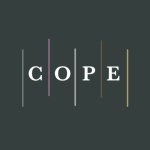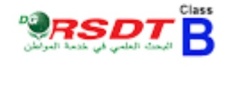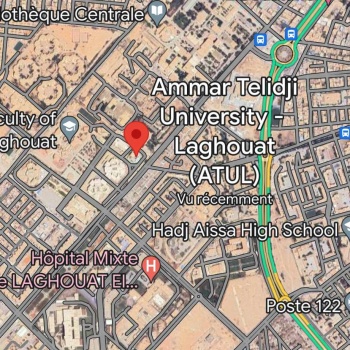Publication ethics
The ethical policy of the Journal of Science and Knowledge Horizons is based on the recommendations of
Statement of Publication Ethics and Misconduct
The Journal of Science and Knowledge Horizons (JSKP) is an international peer-reviewed scientific journal committed to upholding the highest standards of ethical behavior from all parties involved in the process of publishing. This includes authors, the editor-in-chief, editorial board members, peer reviewers, and the publisher, the College of Humanities, Islamic Sciences, and Civilization (Department of Islamic Sciences). This statement is based on the Best Practice Guidelines for Journal Editors provided by the Committee on Publication Ethics (COPE).
Presence of an Ethics Statement
The JSKP is transparent about its ethical requirements for authors and published works. The journal's ethics policy is designed to ensure that all submissions comply with ethical standards, particularly regarding authorship, plagiarism, data integrity, and conflicts of interest. By providing clear guidelines, the journal fosters a trustworthy environment for publishing high-quality scientific research.
Ethical Guide to Journal Publishing
Publishing an article in a peer-reviewed journal like JSKP is a crucial step in developing a coherent and respected knowledge network. It reflects the quality of the work of the authors and the institutions that support them. Peer-reviewed articles support and exemplify the scientific method, making it essential to adhere to ethical behavior standards for all parties involved in publishing: the author, the journal editor, the peer reviewer, and the publisher.
Ethical Oversight
We follow the COPE definition of Ethical Oversight, which includes, but is not limited to, policies on consent to publication, ethical conduct of research involving human subjects, handling confidential data, and business/marketing practices. The editorial staff is committed to observing these ethical principles. The journal will consider appeals from the Ethics and Oversight Committee on issues related to professional and scientific activities involving non-compliance with ethical standards by authors. Appeals must be substantiated and not anonymous.
Publishing Decisions
The editor-in-chief of the journal (JSKP) is responsible for deciding which of the submitted articles should be published. Decisions should be guided by the quality and relevance of the research to the journal's audience. Editors may consult other editors or reviewers to make these decisions, always adhering to the policies of the journal's editorial board and legal requirements concerning defamation, copyright infringement, and plagiarism.
Fair Play
The editor evaluates manuscripts for their intellectual content without considering the race, gender, sexual orientation, religious belief, ethnic origin, citizenship, or political philosophy of the authors.
Confidentiality
The editor and any editorial staff must not disclose any information about a submitted manuscript to anyone other than the corresponding author, reviewers, potential reviewers, other editorial advisors, and the publisher, as applicable.
Disclosure and Conflicts of Interest
Unpublished materials disclosed in a submitted manuscript must not be used in the editor's own research without the express written consent of the author.
Duties of Reviewers
Contribution to Editorial Decisions: Peer review assists the editor in making editorial decisions and may help the author improve the paper through editorial communications.
Promptness: Any referee who feels unqualified to review the research or knows that a prompt review will be impossible should notify the editor and excuse themselves from the review process.
Confidentiality: Manuscripts received for review must be treated as confidential documents. They must not be shown to or discussed with others except as authorized by the editor.
Objectivity Standards: Reviews should be conducted objectively. Personal criticism of the author is inappropriate. Reviewers should express their views clearly with supporting arguments.
Acknowledgment of Sources:
Reviewers should identify relevant published works that authors have not cited. Any statement that an observation, derivation, or argument has been previously reported should be accompanied by the relevant citation. Reviewers should also inform the editor of any substantial similarity or overlap between the manuscript under review and any other published paper of which they have personal knowledge.
Disclosure and Conflicts of Interest:
Privileged information or ideas obtained through peer review must be kept confidential and not used for personal advantage. Reviewers should not consider manuscripts in which they have conflicts of interest resulting from competitive, collaborative, or other relationships with any of the authors, companies, or institutions associated with the papers.
Duties of Authors
Reporting Standards: Authors of original research reports should present an accurate account of the work performed and an objective discussion of its significance. The data underlying the research must be accurately represented in the paper. Fraudulent or knowingly inaccurate statements constitute unethical behavior and are unacceptable.
Data Access and Retention:
Authors should provide raw data in connection with a paper for editorial review and should be prepared to provide public access to such data, if possible, and should be prepared to retain such data for a reasonable period after publication.
Originality and Plagiarism:
Authors must ensure that they have written entirely original works and, if they have used the work or words of others, that this has been appropriately cited or quoted.
In cases of plagiarism, the editor will follow COPE’s guidelines.
Handling Misconduct Cases
When JSKP confirms a violation of publication ethics, it addresses the ethical concerns by following standard case-specific practices as described below. The editor's first action is to inform the JSKP editorial office by providing relevant materials and a draft letter to the corresponding author requesting clarification non-judgmentally. If the author's explanation is not acceptable and serious unethical behavior is suspected, the matter is referred to the Publication Committee via the Editorial Office. The committee will decide whether the case warrants a ban on future submissions. For less serious infringements, the editor, on the advice of the publishing committee, may issue a reprimand to the author and remind them of JSKP’s publishing policies; if the manuscript has been published, the editor may request a published apology to correct the record. The corresponding author will be notified, and any work by the author responsible for the infringement or any work co-authored by them under review by JSKP will be immediately rejected. Authors are barred from serving on the editorial board and as reviewers for the journal. JSKP reserves the right to take further action. In extreme cases, notices will be sent to the authors' affiliations, and authors are prohibited from submitting their work to JSKP for 2 years. In serious cases of fraud leading to retraction, a retraction notice will be published in the journal and linked to the article in the online version. The online version will also be marked "retracted" with the retraction date.
Multiple, Redundant, or Concurrent Publications
Authors should not publish manuscripts describing essentially the same research in more than one journal or primary publication. Submitting the same manuscript to more than one journal concurrently is unethical and unacceptable.
Acknowledgment of Sources
The work of others must always be properly acknowledged. Authors should cite publications that have influenced the nature of the work reported.
Authorship of the Paper
Authorship should be limited to those who have significantly contributed to the conception, design, execution, or interpretation of the study. All significant contributors should be listed as co-authors. Others who have participated in certain substantive aspects of the research project should be acknowledged or listed as contributors. The corresponding author should ensure that all appropriate co-authors are included and that all co-authors have seen and approved the final version of the paper and have agreed to its submission for publication.
Hazards and Human or Animal Subjects
If the work involves unusual hazards, the author must clearly identify them in the manuscript.
Disclosure and Conflicts of Interest
All authors must disclose in their manuscripts any financial or other substantial conflicts of interest that might be construed to influence the results or interpretation of their manuscripts. All sources of financial support for the project should be disclosed.
Fundamental Errors in Published Works
When an author discovers a significant error or inaccuracy in their published work, it is their obligation to promptly notify the journal editor or publisher and cooperate with the editor to retract or correct the paper.
Appeals and Complaints
Policy and Process
This procedure applies to appeals against editorial decisions, complaints about process failures such as delays in handling papers, and complaints about publication ethics. The complaint should first be addressed by the editor(s)-in-chief responsible for the journal and/or the editor who handled the paper. If they are the subject of a complaint, contact the internal publication contact. Complaints about scientific content, such as an appeal against rejection, are reviewed by the chief editor or handling editor, who considers the authors' arguments, informs the reviewer, and decides whether the rejection decision must stand; another independent opinion may be sought for the appeal. The complainant will be informed of the decision, with an explanation if appropriate. Decisions on appeals are final, and new submissions take priority over appeals. Complaints about processes, such as time spent on reviewing, will be investigated by the Editor-in-Chief along with the handling Editor (where applicable) and/or internal contact (where applicable). The complainant will receive appropriate feedback. Feedback is provided to relevant stakeholders to improve processes and procedures. Complaints about publication ethics, such as the behavior of a researcher or reviewer, will be handled following the COPE guidelines. The editor-in-chief or handling editor may seek advice from the publisher on difficult or complex cases. The Editor-in-Chief or handling Editor decides on a course of action and provides feedback to the complainant. If a complainant remains dissatisfied with how their complaint is handled, they can submit the complaint to the Publication Ethics Committee.
Post-Publication Discussions and Corrections
JSKP encourages post-publication debate by allowing the submission of letters to the editor. These letters provide a forum for discussion and critique of published work, fostering a dynamic academic exchange.
Post-Publication Discussions and Corrections
JSKP encourages post-publication debate by allowing the submission of letters to the editor. These letters provide a forum for discussion and critique of published work, fostering a dynamic academic exchange.
Post-publication corrections, if necessary, will be published alongside the original article to maintain transparency strive to follow COPE’s Principles of Transparency and Best Practice in Scholarly Publishing and encourage our publishing partners to uphold these same principles and accuracy. Corrected manuscripts will be published alongside the original manuscript to ensure that readers always have access to the most up-to-date version. All versions will be permanently available and linked to the same Digital Object Identifier (DOI). This approach ensures that any updates or changes are clearly documented and accessible, maintaining the integrity and reliability of the scholarly record
JSKP will follow the COPE guidelines when handling corrections, revisions, or retractions of articles after publication to uphold the highest standards of academic publishing ethics. Archiving and Digital Preservation
The Journal of Science and Knowledge Horizons (JSKP) is committed to the long-term preservation of its published content to ensure its accessibility and integrity. The journal employs the following strategies:
Digital Preservation:
JSKP partners with recognized archiving services such as LOCKSS to guarantee the permanent availability of its articles. This collaboration helps protect the journal's content from potential data loss or unavailability.
Self-Archiving:
Authors are encouraged to self-archive their articles in institutional repositories or personal websites, provided they comply with the journal's policies on copyright and licensing.
Open Access:
All articles published in JSKP are available immediately and free of charge, allowing unrestricted access for readers and researchers worldwide.
By implementing these practices, JSKP ensures the sustainability and accessibility of its scholarly contributions.
Ethics of Research Involving Human Subjects
- Informed Consent
Authors must obtain informed consent from all participants prior to their inclusion in research. This process should include:
Comprehensive Information:
Participants must receive clear and detailed information about the study's purpose, procedures, potential risks, and benefits.
Voluntary Participation:
Authors should ensure that participants understand their involvement is voluntary, and they have the right to withdraw at any time without any negative consequences.
Documentation:
Authors must include a statement in their manuscript confirming that informed consent was obtained. If applicable, a copy of the consent form may be provided as supplementary material, showing participant signatures or other verification methods.
Participant Anonymity and Confidentiality
To protect participants' privacy, authors are required to:
Anonymization:
Ensure that data collected is anonymized to prevent identification of individual participants. This includes removing personal identifiers and any information that may lead to identification.
Confidentiality Measures:
Clearly describe the measures taken to maintain confidentiality, including secure data storage, limited access to data, and protocols for data sharing.
Aggregate Reporting:
When presenting results, authors should ensure that individual participants cannot be identified, utilizing aggregate data wherever possible.
Ethical Approval
Authors must disclose whether their research has received ethical approval from an appropriate ethics committee or institutional review board (IRB). This includes:
Approval Statement:
A statement indicating whether ethical approval was obtained, including the name of the approving body and any reference number, should be included in the manuscript.
Compliance with Ethical Guidelines:
Authors should affirm that their research adheres to relevant ethical guidelines, such as the Declaration of Helsinki or other applicable standards for research involving human subjects.
Documentation Availability:
Authors may be required to provide documentation of ethical approval upon request by the editorial board.
Additional Ethical Considerations and Improvements:
Enhanced Ethical Review Process:
The JSKP Ethics and Oversight Committee consists of senior editors, subject matter experts, and independent ethics advisors.
The committee follows a structured review process for ethical concerns, with a typical response time of 4-6 weeks.
Decision criteria include adherence to international ethical guidelines, potential harm to research subjects, and integrity of the scientific process.
Expanded Scope of Ethical Considerations:
Data Sharing: Authors are encouraged to share research data in accordance with FAIR principles (Findable, Accessible, Interoperable, and Reusable).
Animal and humans Research:
Authors must clearly specify any risks associated with the use of equipment, procedures, or chemicals in their research.
For studies involving humans or animals, authors must state in the manuscript that all procedures were performed in compliance with relevant laws and institutional guidelines, and that these procedures received approval from the appropriate institutional review board. The manuscript must also confirm that informed consent was obtained from all human subjects. The privacy rights of individuals involved in the research must always be respected.
For research involving minors or individuals with disabilities, written informed consent must be obtained from their legal guardians.
Misconduct Allegations: JSKP follows the COPE guidelines for handling allegations of research misconduct, ensuring fair and thorough investigations.
Transparency in Editorial Decision-Making:
The journal maintains a database of editorial decisions to ensure consistency.
Authors receive detailed feedback on rejections, including specific reasons and suggestions for improvement.
The appeals process involves review by an independent editor not involved in the original decision.
Clarified Stakeholder Responsibilities:
Authors: Responsible for ensuring ethical conduct of research, accurate reporting, and addressing reviewer comments.
Reviewers: Expected to provide timely, constructive, and unbiased feedback while maintaining confidentiality.
Editors: Tasked with fair evaluation of manuscripts, managing conflicts of interest, and upholding the journal's ethical standards.
Publisher: Provides resources for ethical publishing, supports editors in difficult cases, and ensures long-term preservation of published content.
Commitment to Continuous Improvement:
Annual review and update of ethical policies by the Ethics and Oversight Committee.
Regular ethics training for editorial board members and reviewers.
Author and reviewer surveys to gather feedback on ethical practices and identify areas for improvement.
Enhanced Accessibility and Integration of Ethical Guidelines:
Publication ethics statement prominently displayed on the journal's homepage and submission portal.
Integration of ethical checklists into the manuscript submission process.
Regular ethics-focused editorials to highlight important issues and best practices.
Proactive Approach to Emerging Ethical Issues:
Establishment of an Ethics Advisory Board to monitor trends in research ethics and publishing.
Development of guidelines for emerging areas such as AI-assisted authorship and big data research.
International Collaboration and Standards:
Active participation in international forums on publication ethics.
Alignment with evolving global standards, such as the Hong Kong Principles for assessing researchers.
Support for Early Career Researchers:
Mentorship program pairing experienced researchers with early career authors to guide ethical research practices.
Dedicated resources and workshops on responsible conduct of research.
Environmental Responsibility:
Commitment to environmentally sustainable publishing practices.
Encouragement of research addressing pressing global challenges, including climate change and sustainability.
By implementing these expanded ethical guidelines, JSKP aims to foster a culture of integrity, transparency, and responsibility in scientific publishing. We recognize that ethical publishing is an evolving field, and we are committed to continuous improvement and adaptation to best serve the scientific community and society at large.














